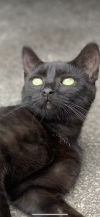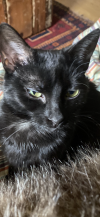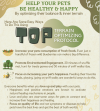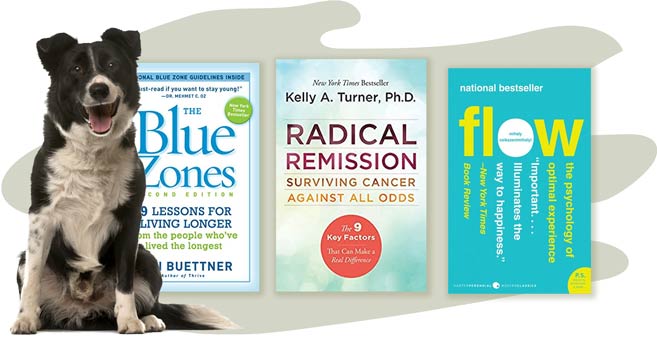AnnaH
Registered
- Joined
- Jun 24, 2021
- Messages
- 162
Hello friends,
I took a feral kitten I was feeding and socializing over the summer in on September 1st. (kitty is now about 9 months). Her father (my indoor/outoor cat and her brother (also indoor/outdoor) live with us. She is only indoors. About 2 months ago she started losing hair around her eye lids and has a receding hairline. I took her to the vet and she said this is normal and Jinxie is healthybut it doesn't feel right. I don't know if it is a coincidence or not but I noticed it started around the time I have been treating her (all of them) with Revolution Flea medicine. I have attached photos so you can see the difference in her eyes lids and hairline. I am sad to see this because she looked healthier as a feral than she does having a healthy. good life indoors. Any insight is greatly appreciated.Thank you! PS.Since taking her in she has only had the a dewormer pyrantel once, the rabies vaccine and 3 rounds of Revolution flea medicine. I wonder If she is having a reaction to Revolution? THANK YOU! Wishing healing for all the fur babies!




I took a feral kitten I was feeding and socializing over the summer in on September 1st. (kitty is now about 9 months). Her father (my indoor/outoor cat and her brother (also indoor/outdoor) live with us. She is only indoors. About 2 months ago she started losing hair around her eye lids and has a receding hairline. I took her to the vet and she said this is normal and Jinxie is healthybut it doesn't feel right. I don't know if it is a coincidence or not but I noticed it started around the time I have been treating her (all of them) with Revolution Flea medicine. I have attached photos so you can see the difference in her eyes lids and hairline. I am sad to see this because she looked healthier as a feral than she does having a healthy. good life indoors. Any insight is greatly appreciated.Thank you! PS.Since taking her in she has only had the a dewormer pyrantel once, the rabies vaccine and 3 rounds of Revolution flea medicine. I wonder If she is having a reaction to Revolution? THANK YOU! Wishing healing for all the fur babies!








